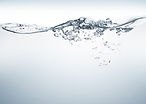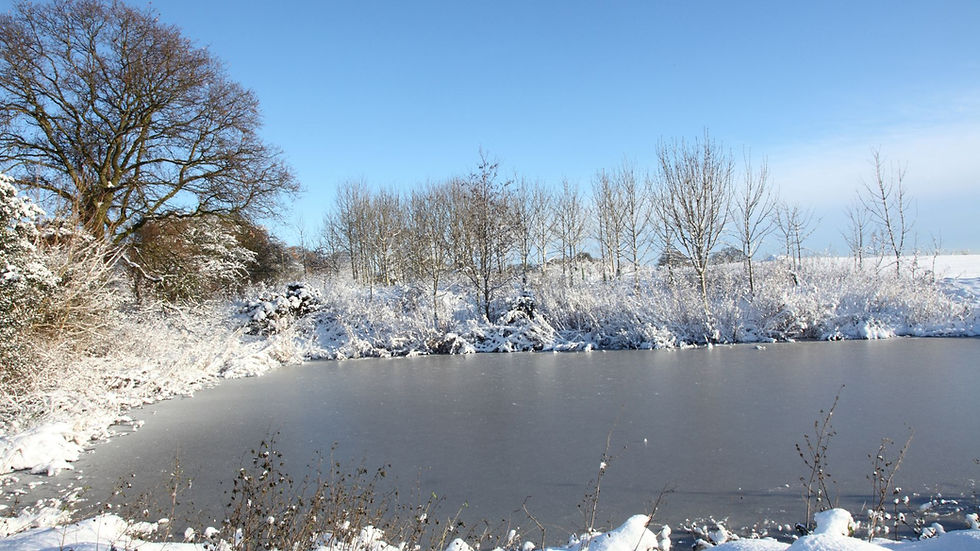Top 5 Essential Winter Pond Care Tips for Healthy Fish and Clear Water
- Richard Fulford

- Dec 21, 2023
- 3 min read
Updated: Feb 9, 2024
As winter sets in, pond owners often face unique challenges in maintaining their aquatic ecosystems. Unlike other seasons, winter demands specific care routines to ensure the health of fish and the clarity of the pond water. This blog post delves into the top five essential winter pond care tips, guiding you through the necessary steps to keep your pond thriving during the colder months.
Five Essential Tips for Winter Pond Care:
1. Ensuring Proper Water Quality
Key Focus: Water Quality, Winter Algae Control, Aeration
In the colder months, the condition of your pond's water can greatly affect its overall health. It's essential to tackle concerns such as managing algae and ensuring adequate oxygen levels. Controlling the proliferation of algae during cooler weather and recognising the significance of aeration devices to preserve oxygen concentration is imperative. Additionally, we must modify the feeding schedules for fish due to their reduced metabolic rate in chillier waters.
2. Managing Fish Health and Nutrition
Key Focus: Fish Health, Winter Feeding, Disease Prevention
Maintaining the well being of your pond fish in the winter season is crucial. This involves attending to the nutritional requirements of fish as temperatures drop, adapting how you feed them accordingly. It's essential to keep an eye on the fish for indications of strain or illness, as these issues tend to be more common during the colder part of the year.
3. Cleaning and Maintenance Routines
Key Focus: Winter Cleaning, Equipment Maintenance, Debris Removal
Caring for a pond during winter involves more than attending to the water and its aquatic inhabitants; it encompasses consistent upkeep and cleaning. Emphasise the significance of clearing away accumulated leaves and debris, inspecting and upkeeping essential pond machinery such as filters and pumps, and the advantages of conducting a thorough pond cleaning before the arrival of extreme winter weather.
4. Ice Management and Temperature Control
Key Focus: Ice Formation, Temperature Monitoring, Winterizing Techniques
When the mercury falls, the development of ice may raise alarms. It is crucial to securely handle ice on the surface of your pond, to stress the necessity of maintaining an area of the pond free from ice to exchange gases, and to employ methods for observing and upholding a suitable temperature in the water.
5. Winter Accessories for Ponds
Key Focus: Ice Free Thermo Frost protection for the pond:
Provides oxygen to the water and allows harmful fermentation gases to escape. Due to its active heating element is also suitable for shallow ponds and permanently cold frost periods. An ice-free area is created around the floating body down to –20 °C.

Reach out to Fish Life Pond Services should you wish to inquire about Ice Free Thermo.
6. Preparing for Spring
Key Focus: Spring Preparation, Plant Care, Long-term Health
Ultimately, proper winter maintenance prepares the groundwork for a thriving springtime pond. This involves getting the pond ready for the approaching warmer season, with attention to plant maintenance and measures to maintain the lasting wellness and clearness of your pond.
Conclusion
Winter may pose unique challenges for pond owners, but with the right care and attention, it’s possible to maintain a healthy, clear pond even in the coldest months. By following these top five essential winter pond care tips, you can ensure the wellbeing of your fish and the overall health of your pond, ready to flourish as spring arrives.
Contact us today to discover how we can maintain your pond's condition throughout the winter season!






Comments